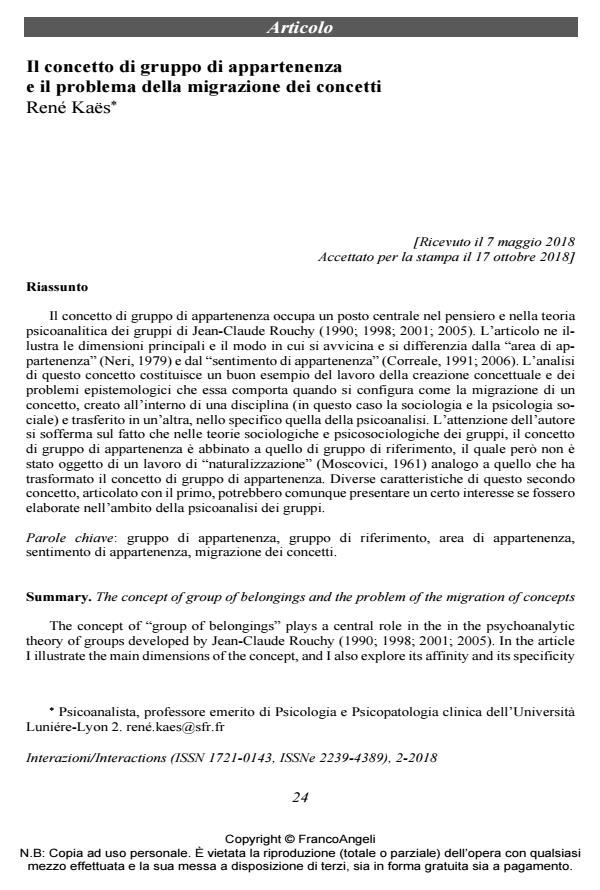The concept of group of belongings and the problem of the migration of concepts
Journal title INTERAZIONI
Author/s René Kaës
Publishing Year 2018 Issue 2018/2
Language Italian Pages 12 P. 24-35 File size 173 KB
DOI 10.3280/INT2018-002003
DOI is like a bar code for intellectual property: to have more infomation
click here
Below, you can see the article first page
If you want to buy this article in PDF format, you can do it, following the instructions to buy download credits

FrancoAngeli is member of Publishers International Linking Association, Inc (PILA), a not-for-profit association which run the CrossRef service enabling links to and from online scholarly content.
The concept of "group of belongings" plays a central role in the in the psychoanalytic theory of groups developed by Jean-Claude Rouchy (1990; 1998; 2001; 2005). In the article I illustrate the main dimensions of the concept, and I also explore its affinity and its specificity toward two further constructs, the "area of belonging" (Neri, 1979) and the "feeling of belonging" (Correale, 1991; 2006). The analysis of this concept constitutes a good example of conceptual creation and of the epistemological problems involved in it when it entails the migration of concepts from one discipline ‒ such as sociology and social psychology ‒ to another ‒ psychoanalysis in our case. As I highlight, in sociological and psycho-sociological theories the concept of "group of belongings" goes hand in hand with that of "group of refe-rence". The latter, however, has not undergone the same process of "naturalization" (Mos-covici, 1961) of the former. Different characteristics of both concepts may be of interest for the psychoanalysis of groups.
Keywords: Group of belonging, group of reference, area of belonging, feeling of belonging, migration of concepts.
René Kaës, Il concetto di gruppo di appartenenza e il problema della migrazione dei concetti in "INTERAZIONI" 2/2018, pp 24-35, DOI: 10.3280/INT2018-002003